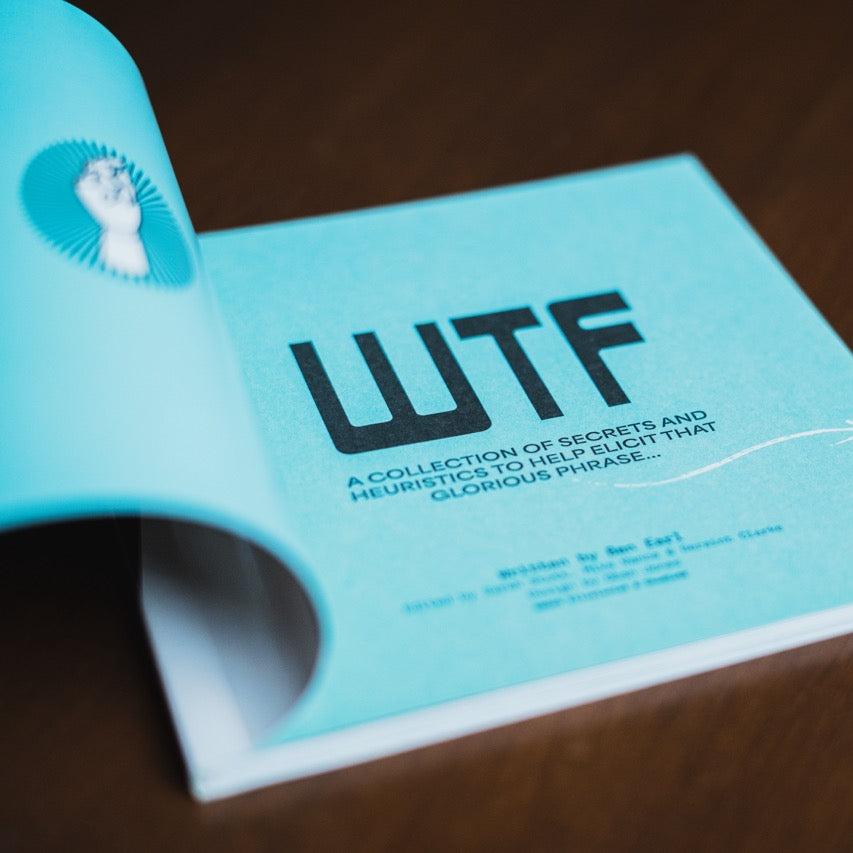
Summary of “WTF (Book From Unreal Card Magic)” by Benjamin Earl
Benjamin Earl’s WTF is a reflective exploration of magic as an art form, blending practical insights with philosophical musings on performance, psychology, and craft. The book centers on transforming tricks into meaningful, impactful experiences that elicit genuine awe (“What the f**k?!”), emphasizing simplicity, audience-centric psychology, and intentional technique.
Core Principles: Simplicity, Flexibility, Reliability
Earl argues that true magic lies in stripping down to essentials. Simplicity—far from ease—requires rigorous discipline to eliminate clutter, reducing failure points and enhancing robustness. A simple structure, though demanding precision, becomes adaptable across contexts. Flexibility involves adapting to unforeseen errors by prioritizing deceptive outcomes over rigid plans. Reliability stems from minimizing angle-sensitive moves, props, or gimmicks, ensuring consistency. Together, these principles create “beautiful” magic—harmonizing methodology, presentation, and psychology.
Psychology: The Audience’s Perspective
Earl critiques magicians’ tendency to focus on ego-driven elements (moves, gimmicks) over audience experience. He stresses:
- Presentation as the effect: A compelling hook (e.g., “Can you know something unknowable?”) should intrigue even without magic, framing the trick as a narrative. Ambiguity and silence leave room for audience imagination, while aligning presentation with the effect’s logic deepens impact.
- Audience engagement: Techniques like using names, light touch, situational humor, “soft eyes” (relaxed gaze to reduce vigilance), and active listening build rapport. Involving spectators (shuffling, choosing cards) transforms them from observers to participants, making the experience personal.
Technique: Invisible and Intentional
Technique should be “invisible unless exposed,” prioritizing application (when/why to use a move) over mere execution. Earl advocates for mastering a minimal set of sleights (e.g., Break Control, Mahatma Shuffle, Double Lift) to avoid overcomplication. Practice focuses on:
- Consistency: The “100-hour rule” (18 minutes/day for a year) builds foundational skill.
- Challenge: Restricting movement or overloading abilities pushes growth.
- Social simulation: Practicing with imagined audiences hones adaptability in real interactions.
Philosophical Insights
Earl reframes magic as an audience experience, not just tricks. Key tenets include:
- Magic as art: The “illusion” is the trick; the “magic” is the audience’s perception—manipulating attention, not just objects.
- Authenticity: Handle props naturally, avoid “magician-like” mannerisms, and perform only when “in the mood” to ensure sincerity.
- Purpose over fame: Magic is a personal passion, not a path to status. Commercial efforts fund the art, but the goal is to explore beauty in simplicity.
Afterword: Values Beyond Magic
Earl concludes by urging readers to prioritize joy in the craft and integrity in life. Being a “good person” matters more than technical skill, as kindness and empathy transform both magic and the world.
In essence, WTF empowers magicians to create deceptive, meaningful experiences by centering the audience, refining simplicity, and embracing magic as a deeply personal art.
Comments0